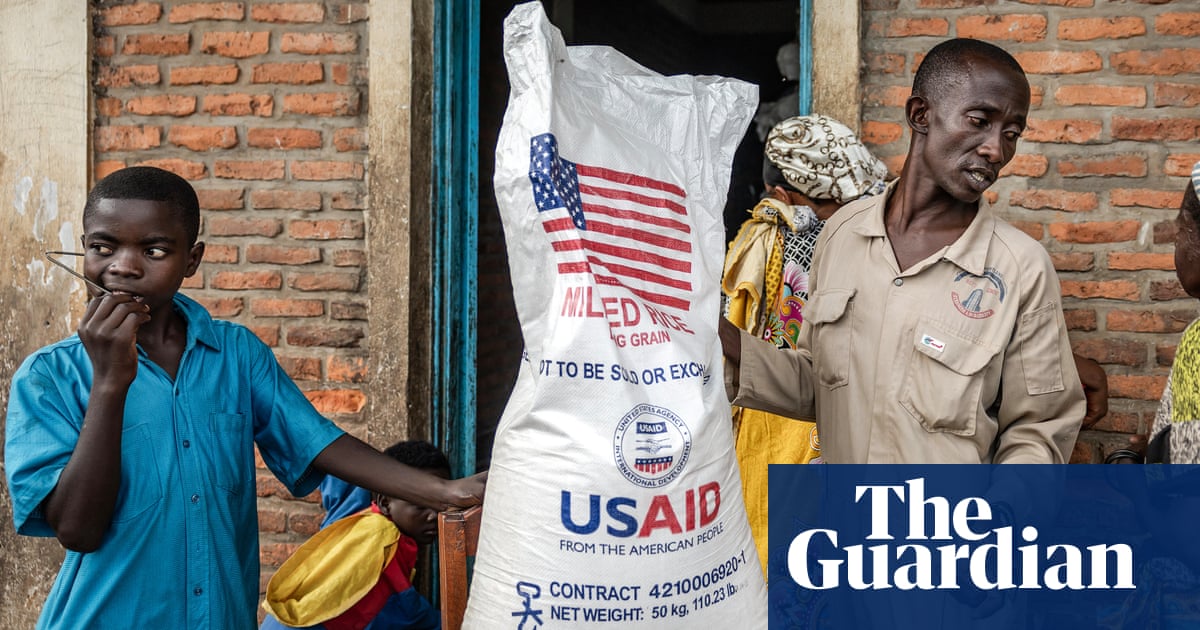TheTrump administrationwill eliminate allUSAID(United States Agency for International Development) overseas positions worldwide by 30 September in a dramatic restructuring of remaining US foreign aid operations.
In a Tuesday state department cable obtained by the Guardian, secretary of stateMarco Rubioordered the abolishment of the agency’s entire international workforce, transferring control of foreign assistance programs directly to the state department.
The directive affects thousands ofUSAIDstaff globally, including foreign service officers, contractors and locally employed personnel across more than 100 countries. Chiefs of mission at US embassies have been told to prepare for the sweeping changes to occur within four months.
“The Department of State is streamlining procedures under National Security Decision Directive 38 to abolish all USAID overseas positions,” the cable reads, adding that the department “will assume responsibility for foreign assistance programming previously undertaken by USAID” from 15 June.
The state department did not respond to a request for comment.
Among those who cleared the cable was Howard Van Vranken, a former ambassador to Botswana.
The decision to close the agency comes after theTrump administration– under the so-called “department of government efficiency” (Doge) – eliminated 83% of USAID’s programs in a six-week purge after Donald Trump took office.
Rubio announced in March that 5,200 of the agency’s 6,200 programs worldwide had been terminated, with the surviving initiatives being absorbed into the state department.
The closures followed an executive order from Trump on his first day back in the White House on 20 January freezing foreign assistance pending a review.
While a waiver was subsequently announced for humanitarian assistance, questions were raised about USAID’s future after its website disappeared on 1 February. Two days later, staff received an email telling them not to come to work following a weekend during which its servers were removed and leadership and senior staff fired or put on disciplinary leave.
Rubio declared himself that agency’s acting administrator after staff were locked out of its Washington headquarters.
Sign up toThis Week in Trumpland
A deep dive into the policies, controversies and oddities surrounding the Trump administration
after newsletter promotion
Amid the cuts, Elon Musk, the billionaire tech entrepreneur and then de facto leader of Doge, gleefully boasted of feeding USAID “into the woodchopper”, while disseminating false claims about its programs – including one assertion that the agency carried out a $50m project to provide condoms in Gaza, a claim that was subsequently proved to be untrue.
According to internal documents, senior officials at the agency warned Rubio of the devastating impact that would be caused by the cuts, including 1 million children untreated for malnutrition, up to 160,000 deaths from malaria and 200,000 more children paralyzed from polio over the next decade if they were implemented.
Remaining officials at the agency were ordered to destroy classified documents, using shredders and “burn bags” in March in an email from USAID’s acting secretary, Erica Y Carr.
“Shred as many documents first, and reserve the burn bags for when the shredder becomes unavailable or needs a break,” Carr wrote to staff.
